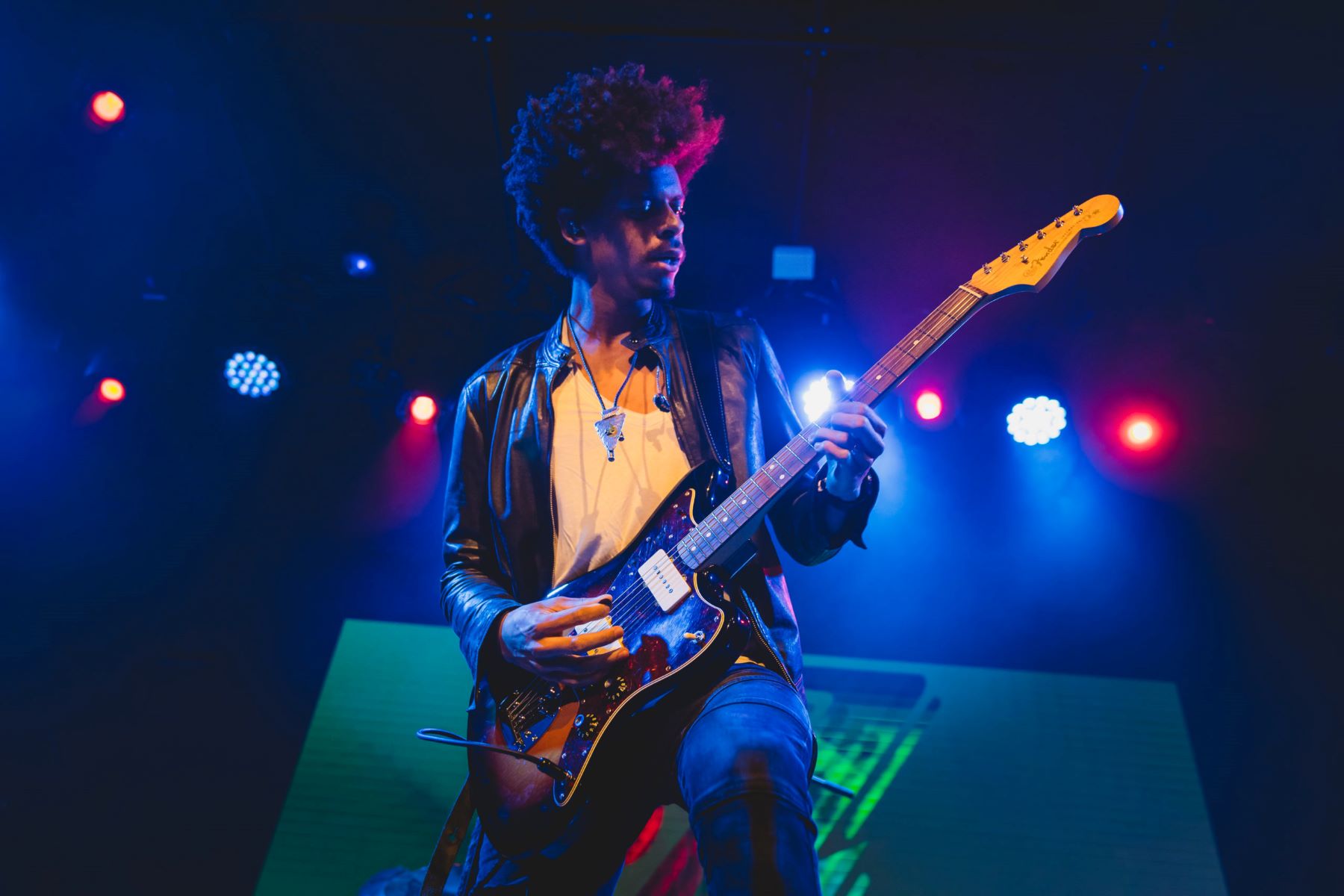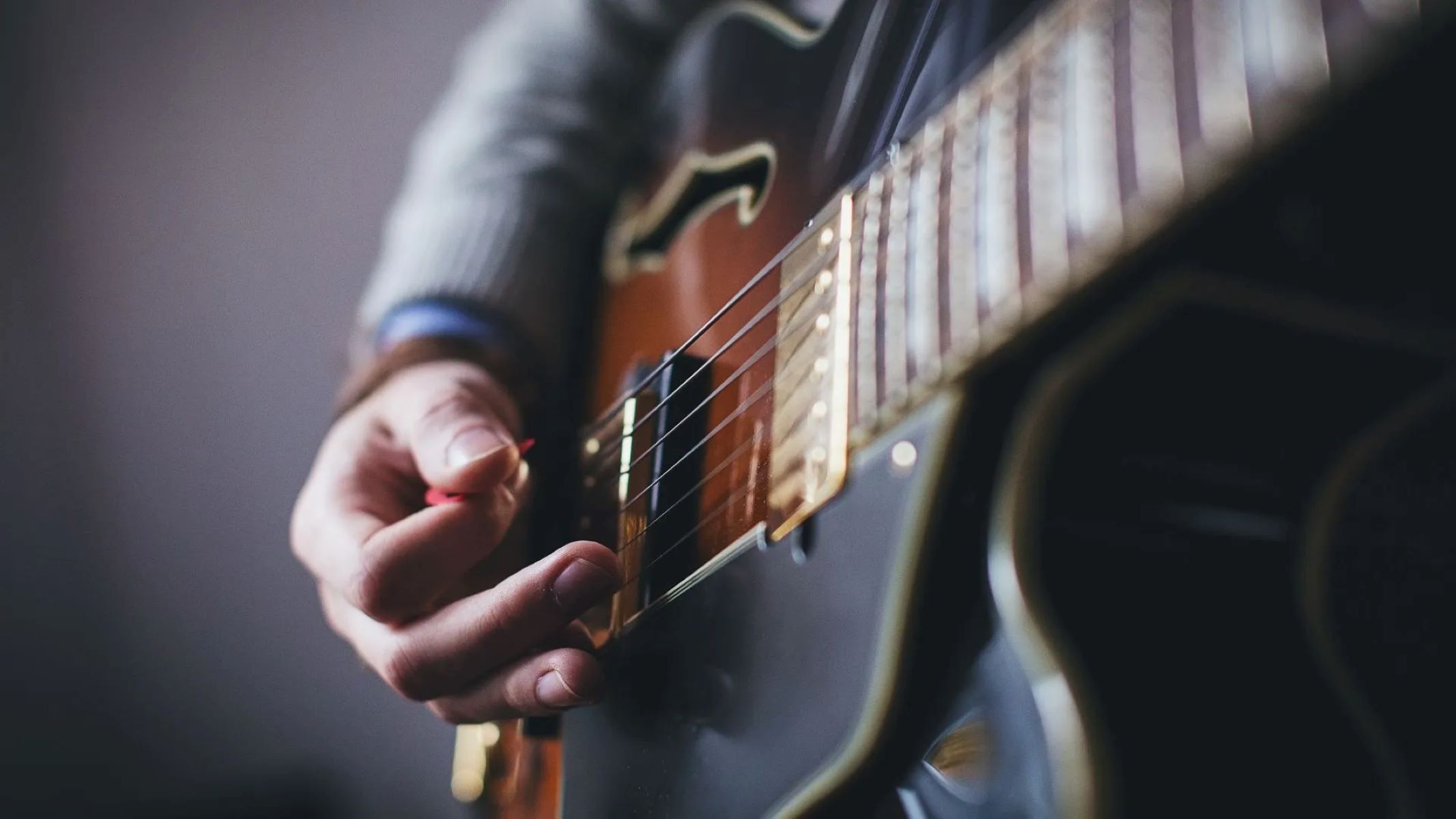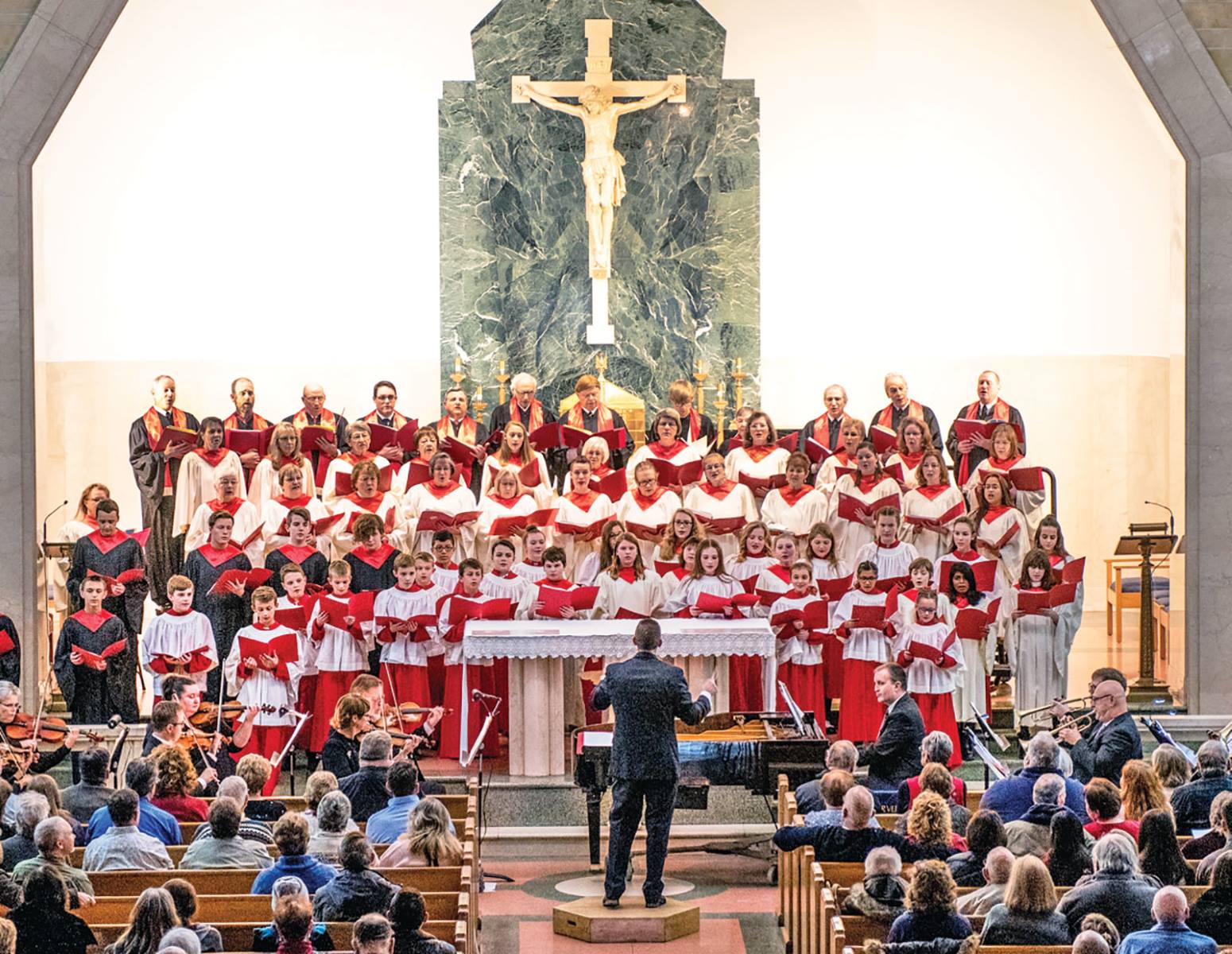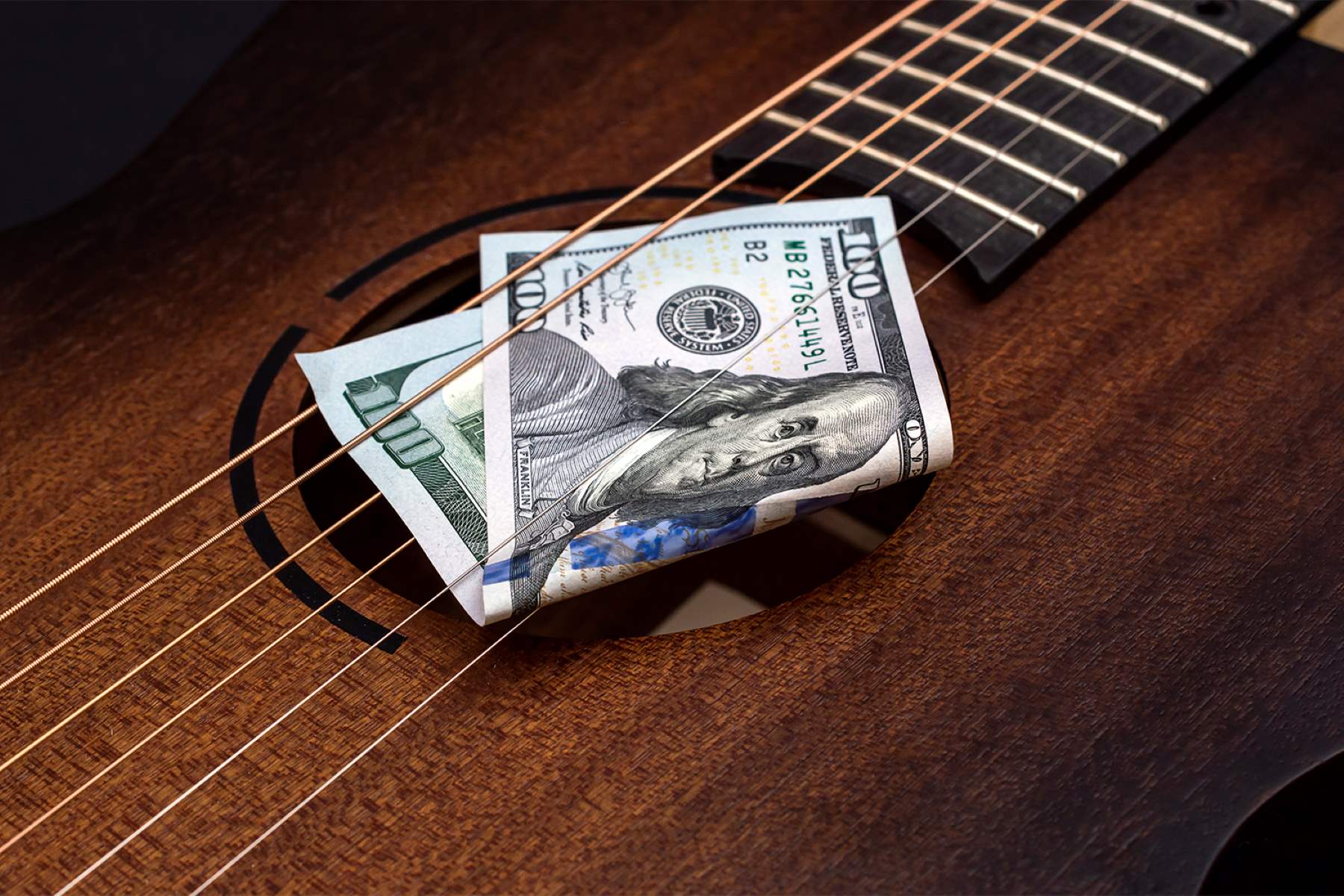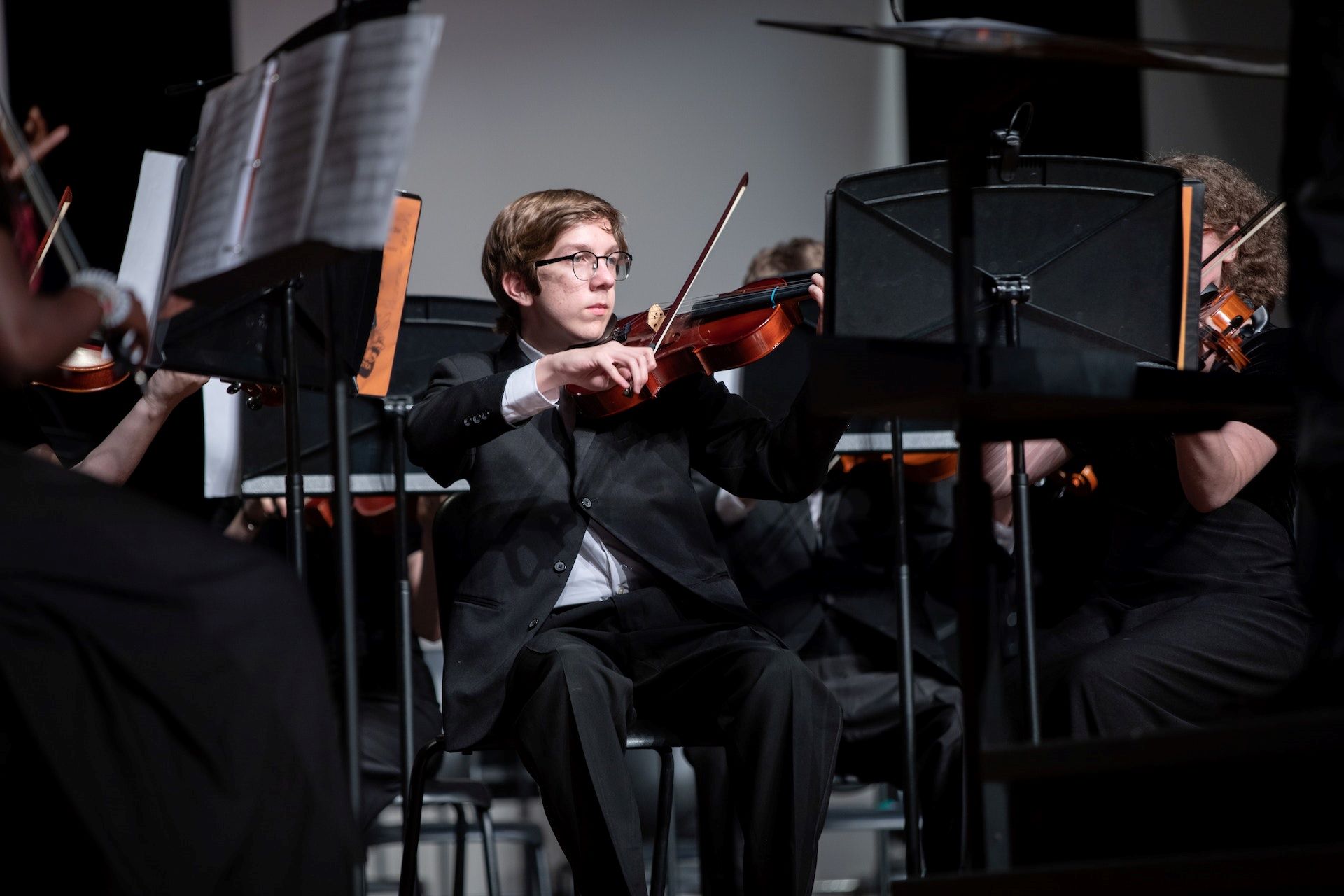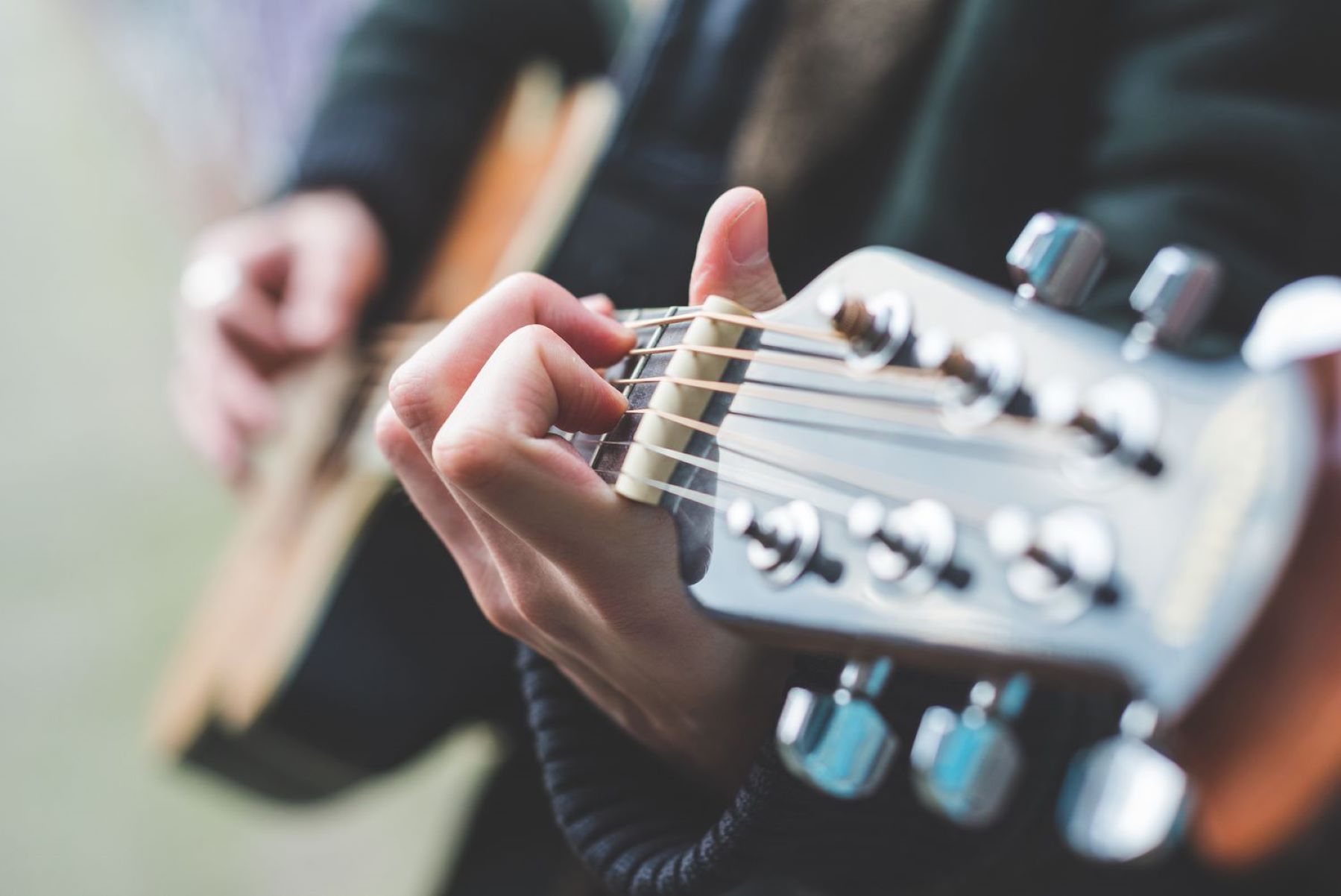Home>Production & Technology>Musician>How To Get Gigs As A Musician


Musician
How To Get Gigs As A Musician
Modified: January 28, 2024
Learn how to get gigs as a musician and boost your career. Discover effective strategies, tips, and resources to book more performances and reach a wider audience.
(Many of the links in this article redirect to a specific reviewed product. Your purchase of these products through affiliate links helps to generate commission for AudioLover.com, at no extra cost. Learn more)
Table of Contents
- Introduction
- Building Your Network
- Online Presence
- Creating an Electronic Press Kit (EPK)
- Contacting Venues and Promoters
- Networking at Music Industry Events
- Collaborating with Other Musicians
- Utilizing Social Media
- Building Your Reputation
- Showcasing Your Talent
- Getting Booked for Local Gigs
- Booking Regional and National Gigs
- Working with Booking Agents and Managers
- Final Thoughts
Introduction
As a musician, one of the most important aspects of your career is getting gigs. Whether you’re a solo artist, in a band, or part of an orchestra, performing live shows is not only a way to showcase your talent but also a means of connecting with your audience and building a fanbase. However, breaking into the live music scene can be challenging, especially if you’re just starting out or trying to expand your reach to new cities and regions.
In this article, we will explore various strategies and tactics to help you get gigs as a musician. Building your network, establishing an online presence, creating an Electronic Press Kit (EPK), contacting venues and promoters, networking at music industry events, collaborating with other musicians, utilizing social media, showcasing your talent, and building your reputation are all crucial elements in securing live performances. By understanding and implementing these strategies, you can increase your chances of getting booked for gigs and elevating your music career to the next level.
It’s important to note that the music industry is highly competitive, and getting gigs requires dedication, persistence, and a proactive approach. This article aims to provide you with actionable steps and insights to help you navigate the gigging landscape and stand out from the crowd. Whether you’re aiming to perform at local venues, regional festivals, or even national tours, the principles and tips outlined here will be applicable to musicians of all genres and career stages.
So, if you’re ready to take your music career to new heights and start landing more gigs, let’s dive in and explore the strategies and techniques that will help you secure those coveted live performances.
Building Your Network
Building a strong network is crucial for any musician looking to get gigs. Your network consists of industry professionals, fellow musicians, and even fans who can help connect you to opportunities and open doors for you. Here are some tips to help you build and expand your network:
- Attend local music events: One of the best ways to meet other musicians, promoters, and industry professionals is to attend local music events. Attend open mic nights, showcases, and concerts to connect with like-minded individuals and establish relationships.
- Join musician organizations: Consider joining organizations or associations for musicians in your area. These groups often hold networking events, workshops, and provide resources to help musicians grow their careers.
- Collaborate with other musicians: Collaborate with other musicians in your genre or complementary genres. By working together on projects, you can tap into their network and gain exposure to their audience.
- Utilize social media: Social media platforms like Instagram, Facebook, and Twitter are powerful tools for networking. Engage with other musicians, industry professionals, and fans by commenting on their posts, sharing their content, and participating in relevant music communities.
- Attend music conferences and workshops: Look for music conferences, seminars, and workshops in your area or even online. These events bring together industry experts and provide opportunities for networking and learning.
- Create and maintain professional relationships: When you meet industry professionals or fellow musicians, make sure to exchange contact information and follow up after the event. Building and nurturing these relationships is crucial for future collaborations and gig opportunities.
- Utilize online platforms: Online platforms like Soundcloud, Bandcamp, and Spotify can help you connect with other musicians, promoters, and fans. Share your music, engage with others’ work, and be active in relevant online communities.
Building your network takes time and effort, but the connections you make can open doors to new gigs, collaborations, and opportunities. Cultivate genuine relationships, be supportive of others, and always be open to new connections. Your network can be a powerful asset in your journey to getting more gigs as a musician.
Online Presence
In today’s digital age, having a strong online presence is essential for any musician looking to get gigs. Your online presence serves as your virtual portfolio and can attract the attention of promoters, venues, and fans. Here are some tips to enhance your online presence:
- Create a professional website: Having a professional website gives you a centralized platform to showcase your music, videos, upcoming shows, and contact information. Make sure your website is visually appealing, user-friendly, and mobile-responsive.
- Utilize social media platforms: Establish a presence on social media platforms that are relevant to your target audience. Focus on platforms like Instagram, YouTube, and Twitter, where you can share updates, behind-the-scenes content, and engage with your fans.
- Showcase your music on streaming platforms: Upload your music to popular streaming platforms such as Spotify, Apple Music, and SoundCloud. This allows you to reach a wider audience and gives potential gig bookers a chance to listen to your music.
- Create engaging content: Regularly create and share high-quality content that resonates with your audience. This can include music videos, live performance videos, interviews, and behind-the-scenes footage. Engage with your fans by responding to comments and encouraging them to share your content.
- Optimize your online profiles: Take the time to optimize your online profiles by using relevant keywords, proper tags, and a compelling bio. This will help you appear in search results and attract the attention of industry professionals.
- Engage with your audience: Interact with your fans, followers, and fellow musicians online. Respond to comments, messages, and mentions, and show your appreciation for their support. Building a strong and engaged online community can help amplify your reach and attract potential gig opportunities.
- Collaborate with influencers: Consider collaborating with influencers or popular music bloggers in your genre. This can expose your music to their audience and potentially lead to gig offers.
- Collect and showcase positive reviews: Ask your fans, friends, and previous gig attendees for reviews and testimonials. Display these positive reviews on your website and social media platforms to showcase your credibility and professionalism.
An effective online presence can significantly increase your chances of getting gigs. It allows you to reach a broader audience, establish credibility, and catch the attention of industry professionals. Make sure to consistently update and curate your online platforms, as they serve as a digital representation of your music and brand.
Creating an Electronic Press Kit (EPK)
An Electronic Press Kit (EPK) is a digital package that contains all the necessary information about you as a musician or band. It serves as a promotional tool to showcase your music, biography, press coverage, photos, and videos to potential promoters, venues, and industry professionals. Here are some key components to include in your EPK:
- Biography: Include a concise and compelling bio that highlights your musical background, accomplishments, and unique selling points. Make sure to mention any notable performances, awards, or collaborations.
- Music: Provide a selection of your best tracks or a demo reel that showcases your musical style and versatility. Include both studio recordings and live performances if possible.
- Photos and videos: Include high-quality promotional photos that capture your image and personality as a musician or band. You should also include professionally shot live performance videos or music videos to showcase your stage presence and showmanship.
- Press coverage: Compile a list of any press coverage or reviews you have received. Include notable quotes or testimonials to demonstrate your credibility and the positive reception of your music.
- Contact information: Include your contact information, including your email address, phone number, and social media links. Make it easy for promoters and industry professionals to reach out to you for booking inquiries.
- Upcoming shows: If you have any upcoming shows or tour dates, include them in your EPK. This shows that you are actively performing and can generate interest from potential bookers.
- Technical requirements: If you have specific technical requirements for your live performances, such as stage dimensions, sound equipment, or lighting needs, make sure to mention them in your EPK. This makes it easier for venues to accommodate your needs.
When creating your EPK, make sure it is well-organized, visually appealing, and easy to navigate. You can create a dedicated EPK page on your website or use online platforms specifically designed for EPKs, such as Sonicbids or ReverbNation. Providing convenient access to all the necessary information in a concise and professional manner can significantly increase your chances of getting booked for gigs.
Contacting Venues and Promoters
Once you have built your network and established a strong online presence, it’s time to start reaching out to venues and promoters to secure gig opportunities. Here are some tips to effectively contact venues and promoters:
- Do your research: Before reaching out to a venue or promoter, do some research to ensure they are a good fit for your music style and target audience. Look for venues that regularly host acts similar to yours and promoters who specialize in your genre.
- Find the right contact: Identify the appropriate contact person at the venue or with the promoter. This could be the booking manager, talent buyer, or event coordinator. Personalize your outreach by addressing them by name.
- Write a professional email: Craft a concise and well-written email that introduces yourself and your music. Be clear about your goals and the type of gig you are seeking. Include links to your website, EPK, and any relevant music samples. Personalize the email to demonstrate your genuine interest in working with them.
- Follow up: If you don’t hear back after sending an initial email, don’t be discouraged. Follow up politely after a week or two to inquire about the status of your inquiry. Persistence and proper follow-up can make a difference in securing gig opportunities.
- Be professional and courteous: Remember to maintain a professional and respectful demeanor in all communications. Respond promptly to any inquiries or requests for additional information. Building a positive reputation as a professional and reliable musician can lead to more gig opportunities in the future.
- Consider networking in-person: Attend local music events, industry conferences, and networking mixers to meet venues and promoters in person. Exchange business cards and strike up conversations to establish a personal connection. These face-to-face interactions can leave a lasting impression and increase the likelihood of getting booked.
- Be flexible and open to opportunities: When contacting venues and promoters, be open to different types of opportunities. This could include opening for established acts, playing at smaller venues, or participating in themed events. These experiences can lead to valuable exposure and future gig opportunities.
Remember, contacting venues and promoters is a numbers game, and not every inquiry will result in a gig. Stay persistent, keep building your network, and refine your outreach strategy based on the responses you receive. With time and effort, you will start building relationships with venues and promoters, leading to more gig opportunities as a musician.
Networking at Music Industry Events
Attending music industry events is an excellent way to expand your network, connect with industry professionals, and potentially land more gig opportunities. Here are some valuable tips for networking at music industry events:
- Research and choose relevant events: Look for industry events, conferences, and workshops that align with your music genre and career goals. Research the guest speakers, panel discussions, and attendees to ensure that the event offers potential networking opportunities.
- Come prepared and be professional: Dress appropriately and bring plenty of business cards or other promotional materials with your contact information. Approach interactions with a professional demeanor and be respectful of others’ time and space.
- Engage in conversations: Strike up conversations with fellow musicians, industry professionals, and event organizers. Be genuine and interested in what others have to say. Ask questions, listen attentively, and show enthusiasm for their projects and experiences.
- Offer value: Be generous with your knowledge and skills. Offer assistance or insights when appropriate, such as sharing resources or giving feedback on someone’s work. By providing value to others, you build goodwill and potentially forge valuable connections.
- Attend workshops and panel discussions: Take advantage of educational opportunities offered at events. Attend workshops, panel discussions, and masterclasses to learn from industry experts and gain valuable insights. Participate actively by asking thoughtful questions and contributing to the discussions.
- Follow up after the event: After the event, follow up with the contacts you made. Send personalized emails expressing your pleasure in meeting them and referencing any conversations or connections you had at the event. Keep in touch and nurture these relationships to build lasting connections.
- Consider performing at showcase events: Some industry events include showcase performances where musicians can showcase their talent in front of a live audience and industry professionals. Apply to perform at these showcases to gain exposure and potentially attract gig opportunities.
- Use social media to connect: Connect with the people you meet at events on social media platforms like LinkedIn or Twitter. Engage with their content and support their work. By staying connected online, you can continue building relationships beyond the event.
- Attend after-parties and networking mixers: Many music industry events include after-parties or networking mixers. These informal settings provide a more relaxed atmosphere for networking and establishing deeper connections with other attendees.
- Be patient and persistent: Building meaningful relationships and securing gig opportunities takes time. Be patient and persistent in your networking efforts. Keep attending events, participating in industry discussions, and nurturing connections. Over time, these efforts will pay off.
Remember, networking is about building authentic relationships and establishing rapport with others in the music industry. Networking at music industry events can open doors to potential gig opportunities and collaborations. Approach these events with a positive mindset and an eagerness to connect with like-minded professionals, and you’ll greatly enhance your chances of landing more gigs as a musician.
Collaborating with Other Musicians
Collaborating with other musicians can be a powerful way to expand your network, inspire creativity, and open doors to new gig opportunities. Here are some tips for successful collaboration:
- Identify compatible musicians: Look for musicians whose style and genre complement yours. Find artists who share your goals, work ethic, and creative vision. Collaborating with like-minded musicians can lead to synergistic collaborations and shared gig opportunities.
- Attend local jams and open mic nights: Regularly attend local jam sessions and open mic nights to meet and connect with other musicians. These environments foster spontaneity and can be a great platform for impromptu collaborations. Exchange contact information and stay connected with musicians you resonate with.
- Utilize online platforms: Online platforms, such as social media groups or musician forums, can help you find potential collaborators who align with your musical style. Participate in online communities, engage with other musicians’ work, and express your willingness to collaborate.
- Define clear goals: When starting a collaboration, clearly define your goals and expectations upfront. Discuss the purpose of the collaboration, the desired outcome, and how you plan to share gig opportunities.
- Be open-minded and adaptable: Embrace different musical perspectives and ideas during the collaboration process. Stay open to exploring new genres, experimenting with different styles, and blending your influences together. Being adaptable and open-minded can lead to unique and memorable collaborations.
- Schedule regular rehearsals: Regularly schedule rehearsals to fine-tune your collaborations. Experiment with different arrangements and interpretations of your music. Establishing a solid collaborative foundation through regular rehearsals can enhance your chemistry as a group and improve your live performances.
- Promote each other’s work: Support your collaborators by promoting their music and gigs through your online platforms. Cross-promotion allows you to reach new audiences and shows your commitment to the collaboration. This reciprocity strengthens the bond between musicians and opens new doors for both parties.
- Perform together: Explore opportunities to perform live together. This can include performing at local venues, music festivals, or even organizing intimate house concerts. Showcasing your collaborative work in front of an audience not only enhances your live performances but also attracts the attention of industry professionals and potential gig bookers.
- Collaborate on recording projects: Collaborate on recording projects to produce new music and expand your portfolio. These recordings can be used to promote your collaboration, attract gigs, and showcase your joint talent to industry professionals.
- Network through each other’s connections: Leverage the network of your collaborators by tapping into their connections. By working together, you gain access to their fanbase, industry connections, and potential gig opportunities.
Collaborating with other musicians can provide fresh perspectives, inspire creativity, and widen your reach in the music industry. By fostering positive collaborations, you not only enhance your musical journey but also increase your chances of securing exciting gig opportunities as a team.
Utilizing Social Media
Social media has revolutionized the way musicians promote their music and connect with audiences. It is an essential tool for getting gigs and expanding your fanbase. Here are some tips for effectively utilizing social media:
- Choose the right platforms: Identify the social media platforms that align with your target audience and musical style. Focus on platforms like Instagram, Facebook, YouTube, and Twitter to engage with your followers and share updates about your music and upcoming gigs.
- Create a compelling profile: Ensure your social media profiles reflect your music and brand. Use high-quality profile pictures and cover photos, and write a captivating bio that highlights your musical style and accomplishments.
- Regularly update your content: Consistently post content that showcases your music, gigs, behind-the-scenes moments, and upcoming events. Mix promotional content with engaging posts that give your audience a glimpse into your creative process and personality.
- Engage with your audience: Respond to comments, messages, and mentions from your followers. Show appreciation for their support and make an effort to build a community around your music. Engaging with your audience creates a sense of connection and loyalty.
- Utilize visual content: Use visually striking images and videos to capture attention and make your content more shareable. Share live performance videos, music videos, and behind-the-scenes clips to give your followers an intimate look into your music career.
- Collaborate with influencers and fellow musicians: Collaborating with popular influencers or fellow musicians can expose your music to a wider audience. Partner with influencers for social media takeovers, guest features, or joint promotions to expand your reach and attract gig opportunities.
- Promote your gigs: Use social media to promote your upcoming gigs and performances. Create event pages, share updates about the event, and encourage your followers to attend and bring their friends. Leverage location-based targeting to reach potential attendees in the specific areas where you’ll be performing.
- Run targeted ads: Consider running targeted ads on social media platforms to reach new audiences who may be interested in your music. Experiment with different ad formats and targeting options to maximize your reach and attract potential gig bookers.
- Collaborate with fans: Encourage your fans to create and share content related to your music and gigs. Host contests, fan covers, or challenges that get your followers involved. This not only boosts engagement but also creates a sense of community and increases the chances of word-of-mouth promotion.
- Monitor your analytics: Pay attention to the analytics provided by each social media platform. Analyzing audience insights, post engagement, and reach data can help you understand what type of content resonates best with your followers. Use this data to optimize your social media strategy and improve your chances of getting gigs.
Utilizing social media effectively is a powerful way to increase your visibility, attract gig opportunities, and grow your fanbase. Consistent engagement, creative content, and strategic promotion through social media can greatly enhance your chances of getting noticed by industry professionals and securing more gigs as a musician.
Building Your Reputation
Building a strong reputation as a musician is essential for attracting gig opportunities and gaining the trust of industry professionals. Here are some tips for building and maintaining a positive reputation:
- Deliver exceptional performances: Strive to consistently deliver outstanding performances, both onstage and in the studio. Focus on honing your musical skills, stage presence, and captivating the audience with your talent and passion.
- Be professional and reliable: Always be on time for rehearsals, sound checks, and gigs. Show respect and professionalism towards your bandmates, crew, and music industry professionals you interact with. Being dependable and respectful can help you develop a reputation as a reliable and trustworthy musician.
- Network and collaborate: Actively engage with other musicians, industry professionals, and fans. Collaborate with fellow musicians, participate in music industry events, and build relationships with industry insiders. A positive reputation can be built through strong connections and collaborations.
- Communicate effectively: Clear and open communication is crucial for establishing a good reputation. Be responsive to emails, inquiries, and messages from potential gig bookers. Keep everyone involved in your music career informed and updated on relevant information.
- Be adaptable: Be open to different musical opportunities and genres. Adapting to different styles and experimenting with various genres can showcase your versatility and flexibility, which can enhance your reputation and attract diverse gig offers.
- Show professionalism online: Maintain a professional and respectful online presence. Be mindful of what you share on social media platforms and avoid engaging in public online disputes. Use social media as a tool to connect with fans and industry professionals in a positive and uplifting manner.
- Seek feedback and continuous improvement: Request feedback from trusted individuals in the music industry, such as fellow musicians, mentors, or music educators. Actively seek opportunities to improve your skills and knowledge. Embracing constructive criticism and constantly striving to grow as a musician will enhance your professional reputation.
- Take care of your gear and equipment: Maintain your instruments and equipment in good condition. This not only ensures that you always deliver optimal performances but also reflects your dedication and professionalism as a musician.
- Volunteer and support the music community: Get involved in your local music community by volunteering, organizing music events, or supporting charitable causes related to music. Being an active and supportive member of the music community enhances your reputation and shows your commitment to the craft.
- Celebrate successes and express gratitude: Acknowledge and celebrate milestones and accomplishments in your music career. Express gratitude to your fans, supporters, fellow musicians, and industry professionals who have contributed to your success. Gratitude and humility are important qualities that can build a positive reputation.
Building your reputation as a musician takes time and effort, but it is a vital aspect of securing gig opportunities and establishing yourself as a professional in the music industry. By consistently delivering outstanding performances, maintaining professionalism, and actively engaging with the music community, you can build a strong reputation that will enhance your music career and attract more gig offers.
Showcasing Your Talent
As a musician, showcasing your talent is crucial for attracting gig opportunities and capturing the attention of industry professionals. Here are some tips to effectively showcase your talent:
- Record high-quality demos: Invest in recording high-quality demos that accurately represent your musical style and abilities. A professional recording can make a significant impact when sharing your music with promoters, venues, and potential collaborators.
- Perform live: The stage is where you truly shine as a musician. Perform live as often as possible to showcase your talent. Seek opportunities to open for established acts, participate in open mic nights, or perform at local venues. Engage with the audience, exude confidence, and leave a lasting impression with your performance.
- Create engaging visuals: Use visually appealing elements to enhance your live performances and online presence. Incorporate lighting, stage design, and visual effects that complement your music and create a captivating experience for the audience.
- Experiment with unique arrangements: Put your own spin on popular songs or experiment with different arrangements to demonstrate your musical creativity and versatility. Showcase your ability to reimagine songs and showcase your unique style.
- Showcase your instrumental skills: If you’re an instrumentalist, dedicate moments during your performances to highlight your skills. Display technical proficiency, improvisation, and intricate solos that demonstrate your musical prowess.
- Create compelling music videos: Music videos are an excellent way to visually showcase your talent. Create high-quality videos that align with your music and convey your artistic vision. Share these videos on social media and your website to engage your audience and attract gig opportunities.
- Participate in competitions and showcases: Competitions and showcases provide a platform to showcase your talent to a larger audience and industry professionals. Participate in local and national competitions, talent shows, or music festivals. Winning or being recognized in these events can boost your reputation and attract gig opportunities.
- Collaborate with other talented musicians: Collaborating with other talented musicians can elevate your performances and showcase your ability to work well with others. Seek opportunities to collaborate on recordings, live performances, or special projects that highlight your combined talent.
- Show diversity in your repertoire: Demonstrate your ability to perform various genres and adapt to different musical styles. Having a diverse repertoire shows your versatility and makes you more appealing to a wider range of gig opportunities.
- Engage with your audience: Interact with your audience during performances and on social media. Connect with them emotionally through your music and engage in conversations. Building a strong connection with your audience will leave a lasting impression and attract loyal fans and gig opportunities.
Showcasing your talent effectively requires a combination of live performances, professional recordings, captivating visuals, and engaging with your audience. By consistently demonstrating your musical abilities in creative and impactful ways, you enhance your chances of attracting gig opportunities and making a lasting impression in the music industry.
Getting Booked for Local Gigs
Securing local gigs is an important stepping stone in your music career. Local shows not only help you gain experience and refine your performance skills but also allow you to establish a strong local fanbase and build industry connections. Here are some tips to help you get booked for local gigs:
- Research local venues: Identify venues in your area that regularly host live music gigs. Research their booking process, the type of music they typically feature, and their target audience. Tailor your approach to match their preferences.
- Make a professional pitch: Write a professional and concise email or press kit that introduces yourself, highlights your music, and expresses your interest in performing at the venue. Include links to your website, music samples, and any notable achievements.
- Attend local shows: Show your support for other local musicians by attending their gigs. Introduce yourself to the performers, venue staff, and promoters. Networking in person can help you establish connections and increase your visibility in the local music scene.
- Volunteer to open for established acts: Offer to be an opening act for established musicians or bands that align with your musical style. This can help you gain exposure to a larger audience and attract the attention of promoters and venue owners.
- Join local music communities: Become an active participant in local music communities. This includes joining Facebook or online groups dedicated to local musicians, attending music workshops or meetups, and collaborating with other local artists.
- Offer promotional benefits: When approaching venues, highlight the promotional benefits you can bring. Offer to promote the gig heavily on your social media platforms, invite your fanbase, and cross-promote the venue on your website or email newsletter.
- Stay persistent and follow up: If you don’t receive a response to your initial inquiry, follow up politely after a reasonable period. Persistence can demonstrate your commitment and professionalism, and it may catch the attention of busy venue managers or promoters.
- Be flexible with scheduling: Flexibility is key, especially when starting out. Offer to play on weeknights or during off-peak hours if it increases your chances of getting booked. As you build a reputation, you can negotiate more ideal time slots.
- Showcase your local connection: Emphasize your local connection when reaching out to venues. Mention your involvement in the community, local events you’ve played at, and any other ties that demonstrate your commitment to the local music scene.
- Deliver a memorable performance: Once you secure a local gig, give it your all. Deliver an unforgettable performance and engage with the audience. Leave a lasting impression that will make venue owners, promoters, and attendees eager to book you again.
Securing local gigs takes time and perseverance, but it’s an important part of building your musical career. By researching local venues, making professional pitches, networking, and delivering memorable performances, you can increase your chances of getting booked for local gigs and establishing a solid foundation in your music community.
Booking Regional and National Gigs
Once you have gained experience and built a strong local following, it’s time to expand your horizons and book regional and national gigs. These opportunities can significantly elevate your music career and expose your talent to a larger audience. Here are some tips to help you secure regional and national gigs:
- Research potential venues and promoters: Identify venues and promoters in the regions or cities you wish to perform in. Research their booking process, the type of music they typically book, and their target audience. Tailor your approach to match their preferences.
- Reach out to local bands and touring acts: Connect with local bands or touring acts from your target regions. Offer to be an opening act for their shows, as this can provide valuable exposure to a new audience and help you establish connections with local promoters and venues.
- Attend regional music conferences and festivals: Regional music conferences and festivals are excellent platforms for networking and showcasing your talent to industry professionals. Attend these events, participate in networking opportunities, and seek showcase opportunities to gain exposure to regional promoters and venue owners.
- Develop an electronic press kit (EPK): Create a comprehensive EPK that highlights your music, accomplishments, press coverage, and live performance videos. Make it easily accessible on your website and include it in your communications with venues and promoters.
- Build relationships with booking agents and managers: Connecting with booking agents and managers who specialize in your genre can significantly enhance your chances of getting regional and national gigs. Attend music industry events, reach out to them with your EPK, and seek their guidance and representation.
- Utilize online gig platforms: Explore online gig platforms that connect musicians with venues and promoters. Websites such as GigSalad, Sonicbids, and ReverbNation provide opportunities to apply for gigs and increase your visibility in new regions.
- Utilize social media and online promotion: Leverage your online presence to expand your reach to regional and national audiences. Actively engage with fans from different regions, share updates about your upcoming shows, and use targeted advertising to promote your gigs in specific areas.
- Tour strategically: Plan and execute regional tours strategically to maximize your time and resources. Identify regions where you have a growing fanbase or connections, and coordinate a series of gigs in those areas. Seek out support from local bands and promoters to help secure tour dates.
- Attend industry showcases and networking events: Regional and national industry showcases and networking events can provide valuable opportunities to connect with industry professionals, promoters, and venue owners. Attend these events, perform if possible, and build relationships with key players in the regions you wish to perform in.
- Stay persistent and resilient: Booking regional and national gigs can be challenging and competitive. Stay persistent in your outreach efforts, follow up on opportunities, and be resilient in the face of rejection. Building a successful touring schedule takes time and dedication.
Booking regional and national gigs requires careful planning, networking, and perseverance. By researching venues and promoters, utilizing online platforms, building relationships with industry professionals, and strategically touring, you can increase your chances of securing regional and national opportunities and taking your music career to new heights.
Working with Booking Agents and Managers
Working with booking agents and managers can greatly enhance your career as a musician. These professionals have the expertise and connections to secure gigs, negotiate contracts, and help navigate the music industry. Here are some tips for effectively working with booking agents and managers:
- Understand their role: Familiarize yourself with the responsibilities of booking agents and managers. Booking agents focus on securing gig opportunities while managers handle broader aspects of your career, including publicity, marketing, and overall strategy.
- Research and approach the right professionals: Look for booking agents and managers who specialize in your genre and have a strong track record of working with artists similar to you. Reach out to them with a professional email or press kit, highlighting your accomplishments and goals.
- Build relationships: Building a solid relationship with your booking agent or manager is essential. Regularly communicate with them, discuss your career goals, and provide updates on new music releases, tours, and promotional activities.
- Trust their expertise: Booking agents and managers have insider knowledge of the music industry. Trust their advice and guidance when it comes to gig opportunities, tour planning, and overall career strategy. They can offer valuable insights and help you make informed decisions.
- Collaborate on gig strategy: Work closely with your booking agent to outline your gig strategy. Discuss the regions or cities you want to target, the type of venues you aspire to perform at, and your preferred time frame for touring. Collaborate on crafting an effective gig schedule.
- Provide necessary materials: Supply your booking agent or manager with any materials they need to effectively promote and book shows on your behalf. This may include updated press photos, music recordings, a current EPK, and a list of previous gigs and achievements.
- Be responsive and organized: Respond promptly to booking inquiries and provide any requested information in a timely manner. Demonstrate professionalism, organization, and a willingness to collaborate, as it will instill confidence in your team’s ability to work with you.
- Stay involved in decision-making: While it’s essential to trust your booking agent or manager’s expertise, stay involved in important decision-making processes. Maintain open communication and provide input when necessary to ensure your vision and preferences are considered.
- Negotiate contracts together: Work closely with your booking agent or manager to negotiate fair contracts for gigs. Discuss the terms, such as performance fees, accommodations, travel arrangements, and technical requirements. Your team can protect your best interests and secure favorable deals.
- Evaluate and reassess: Regularly evaluate your working relationship with your booking agent or manager. Assess the progress made, the effectiveness of the strategies implemented, and whether the goals set are being achieved. Make adjustments and have honest conversations as needed to ensure you’re on track.
Working with booking agents and managers can give your music career a valuable boost. By building strong relationships, trusting their expertise, collaborating on gig strategies, and maintaining open communication, you can make the most of the partnership and increase your chances of securing more gigs and expanding your audience.
Final Thoughts
Securing gigs as a musician is crucial for building your career, expanding your fanbase, and gaining valuable experience. It requires a multifaceted approach that encompasses networking, online promotion, showcasing your talent, and strategic planning. By implementing the strategies and tips outlined in this article, you can increase your chances of getting booked for gigs at the local, regional, and even national level.
Remember, building your network and establishing relationships with industry professionals, fellow musicians, and fans is essential. Attend local music events, join musician organizations, and actively participate in online communities to expand your connections. Collaborating with other musicians can also provide valuable opportunities to grow your network and explore new creative directions.
Utilizing social media and maintaining a strong online presence is crucial in today’s digital age. Engaging with your audience, sharing high-quality content, and promoting your gigs can significantly enhance your visibility and attract gig opportunities. Creating an electronic press kit (EPK) and effectively contacting venues and promoters are important steps in showcasing your talent and professionalism.
As your reputation grows, so will your chances of booking more gigs. Strive for excellence in your performances, embrace adaptability and open-mindedness, and demonstrate professionalism in all aspects of your music career. And don’t forget the power of perseverance—building a successful music career takes time and persistence.
Lastly, consider working with booking agents and managers who can provide guidance, amplify your reach, and secure valuable gig opportunities. Trust their expertise, collaborate effectively, and communicate your goals and preferences to ensure a successful partnership.
Securing gigs as a musician is a continuous journey that requires dedication, creativity, and a proactive approach. By implementing the strategies mentioned in this article and staying true to your passion, you can increase your visibility, attract a loyal fanbase, and elevate your music career to new heights. Good luck and let your talent shine on stage!



